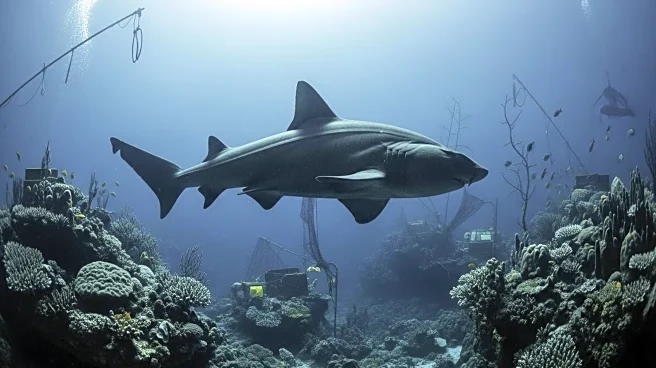What's Happening?
Marine biologist Ruth Leeney has raised concerns about the impact of bottom trawling and deep-sea mining on deep-sea sharks. During a research project off Namibia, Leeney documented various shark species caught accidentally by trawlers, including gulper sharks, which are targeted for their liver oil. These sharks, living under high pressure near the seafloor, suffer barotrauma when brought to the surface, often leading to their death. Leeney's research aims to highlight the biodiversity risks posed by deep-sea mining and unsustainable fishing practices, which threaten these rarely seen species.
Why It's Important?
The research underscores the ecological importance of deep-sea sharks and the potential consequences of human activities on marine biodiversity. These sharks play a crucial role in maintaining ocean health, and their slow breeding rates mean that population recovery is difficult if they are overfished or their habitats are destroyed. The findings could influence policy changes towards more sustainable fishing practices and raise awareness about the environmental impact of deep-sea mining, potentially leading to stricter regulations to protect these vulnerable ecosystems.
What's Next?
Leeney plans to publish her findings next year, hoping to drive awareness and promote sustainable practices in deep-sea fishing. The data could inform policy makers and conservationists about the need for protective measures for deep-sea ecosystems. As awareness grows, there may be increased pressure on governments and industries to adopt more sustainable practices and invest in technologies that minimize environmental impact.
Beyond the Headlines
The study highlights ethical considerations regarding the exploitation of marine resources and the responsibility of industries to preserve biodiversity. It also raises questions about the long-term sustainability of current fishing and mining practices, urging a reevaluation of how these activities are conducted to prevent irreversible damage to marine ecosystems.








